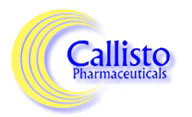NEW YORK, Aug. 29, 2007 /PRNewswire-FirstCall/ — Callisto Pharmaceuticals, Inc. (Amex: KAL – News; FWB: CA4), a developer of new drug treatments in the fight against cancer and gastrointestinal disorders and diseases, today announced that the staff of the American Stock Exchange (“AMEX”) has reviewed the Company’s plan of compliance to meet the AMEX’s continued listing standards and will continue the Company’s listing while the Company seeks to regain compliance with Sections 1003 (a)(i) and 1003 (a)(ii) during the period ending April 3, 2008. As previously announced, on October 3, 2006 the Company received notice from the AMEX staff indicating that the Company was below certain of the Exchange’s continued listing standards due to guidelines set forth in sections 1003(a)(iv) and Section 1003(a)(i) of the AMEX Company Guide. The Company was further advised on June 18, 2007 that it was not in compliance with Section 1003 (a)(ii). Based upon a review of publicly available information, the AMEX staff has determined that the Company has resolved the continued listing deficiency with respect to Section 1003 (a)(iv). The Company will be subject to periodic review by the AMEX Staff during the plan period. Failure to make progress consistent with the plan or to regain compliance with the continued listing standards by the end of the extension periods could result in the Company being delisted from the AMEX.
About Callisto Pharmaceuticals, Inc.
Callisto is a biopharmaceutical company focused on the development of new drugs to treat various forms of cancer and gastrointestinal diseases. Callisto’s drug candidates in development currently include anti-cancer agents in clinical development, in addition to drugs in pre-clinical development for other significant health care markets, including gastrointestinal disorders. One of the Company’s lead drug candidates, Atiprimod is presently in a Phase II clinical trial in advanced carcinoid cancer patients, and in a Phase I/IIa human clinical trial in relapsed or refractory multiple myeloma patients. Another anti-cancer drug, L-Annamycin, is being developed as a treatment for forms of relapsed or refractory acute leukemia, a currently incurable blood cancer. L-Annamycin is currently in a Phase I clinical trial in adult relapsed or refractory acute lymphocytic leukemia, and in a Phase I clinical trial in children and young adults with refractory or relapsed acute lymphocytic leukemia or acute myelogenous leukemia. L- Annamycin, a member of the anthracycline family of proven anti-cancer drugs, has a novel therapeutic profile, including potential activity against multi- drug resistant tumors and significantly reduced cardiotoxicity, or damage to the heart, compared to currently available drug alternatives. Callisto also has a proprietary drug Guanilib in preclinical development for gastro- intestinal disorders. Callisto has exclusive worldwide licenses from AnorMED Inc. and M.D. Anderson Cancer Center to develop, manufacture, use and sell Atiprimod and L-Annamycin, respectively. Callisto is also listed on the Frankfurt Stock Exchange under the ticker symbol CA4. More information is available at http://www.callistopharma.com.
Forward-Looking Statements
Certain statements made in this press release are forward-looking. Such statements are indicated by words such as “expect,” “should,” “anticipate” and similar words indicating uncertainty in facts and figures. Although Callisto believes that the expectations reflected in such forward-looking statements are reasonable, it can give no assurance that such expectations reflected in such forward-looking statements will prove to be correct. As discussed in the Callisto Pharmaceuticals Annual Report on Form 10-K for the year ended December 31, 2006, and other periodic reports, as filed with the Securities and Exchange Commission, actual results could differ materially from those projected in the forward-looking statements as a result of the following factors, among others: uncertainties associated with product development, the risk that products that appeared promising in early clinical trials do not demonstrate efficacy in larger-scale clinical trials, the risk that Callisto will not obtain approval to market its products, the risks associated with dependence upon key personnel and the need for additional financing.
